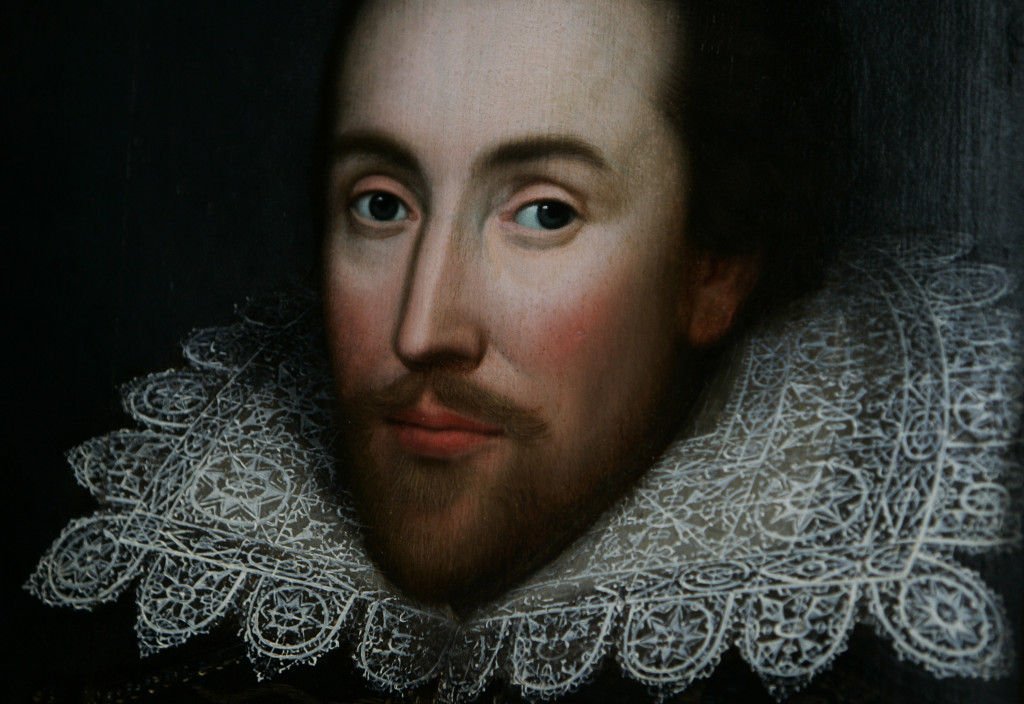Will The Real Will Shakespeare Please Stand Up?

October 28, 2011
Share
One of life’s great joys is impressing other people with your knowledge of literary feuds.
So as you head off this weekend to watch the new Shakespeare film Anonymous — or maybe not if you read A.O. Scott’s review in today’s New York Times, which describes the film “a vulgar prank on the English literary tradition, a travesty of British history and a brutal insult to the human imagination” — FRONTLINE is here to give you the dirt on who this Edward de Vere guy is, and why he’s at the center of a scholarly debate about the true identity of one of history’s greatest writers, courtesy of our 1989 film The Shakespeare Mystery.
There are three major theories about Shakespeare’s identity: Was he an actor from Stratford; Edward de Vere, 17th Earl of Oxford; or playwright Christopher Marlowe? Anonymous says it was de Vere, arguing that because being a playwright was frowned upon in noble circles (and because his plays were politically scandalous), de Vere was forced to write under a nom de plume.
“Oxfordians,” as those in the de Vere camp are known, maintain that his life as a poet, highly educated courtier, adventurer and England’s highest-ranking earl really does fit with the extraordinary range of knowledge reflected in the work of Shakespeare.
But not everyone agrees.
To explore both sides of the debate, read “The Case for Oxford” and “The Case for Shakespeare,” both published in The Atlantic.
But if you really want to impress your friends, dig into this scholarly throwdown: Start with Charlton Ogburn’s 1974 Harvard Magazine piece that pushes the de Vere theory; two Harvard professors responded in opposition, after which Ogburn issued a letter, in part reading:
Let us have a trial between Stratford and Oxford, each side to have a chance to present a full brief for its case, one not confined to the compass of a magazine article, and full opportunity for rebuttal.
The good news (or the bad news for Oxfordians) is that there actually were several mock trials. One, enacted by the Boston Bar Association in 1993, found for Stratford’s Shakespeare 6 to 4. Another in 1987 at American University, presided over by current and former Supreme Court justices William Brennan, Harry Blackmun and John Paul Stevens, was unanimously decided in favor of Stratford.
But the American courts didn’t convince the die-hard de Verians. Here’s an Oxford Society “timeline of doubt” that predictably favors the Earl as author.
So as you sit in a dark theater, remember this: It’s OK to shout out things you learned reading this blog post. That’s what we’re here for, and the people around you will appreciate it.
Bonus: If you’re in the “Hey, Christopher Marlowe was really Shakespeare!” camp, don’t worry: We have a website on that, too, complete with more info on the authorship debate, insights into what the debate itself means, and a quiz to test your Shakespeare knowledge.
Latest Documentaries
Explore
Policies
Teacher Center
Funding for FRONTLINE is provided through the support of PBS viewers and by the Corporation for Public Broadcasting, with major support from Ford Foundation. Additional funding is provided the Abrams Foundation, Park Foundation, John D. and Catherine T. MacArthur Foundation, Heising-Simons Foundation, and the FRONTLINE Trust, with major support from Jon and Jo Ann Hagler on behalf of the Jon L. Hagler Foundation, and additional support from Koo and Patricia Yuen. FRONTLINE is a registered trademark of WGBH Educational Foundation. Web Site Copyright ©1995-2025 WGBH Educational Foundation. PBS is a 501(c)(3) not-for-profit organization.



















